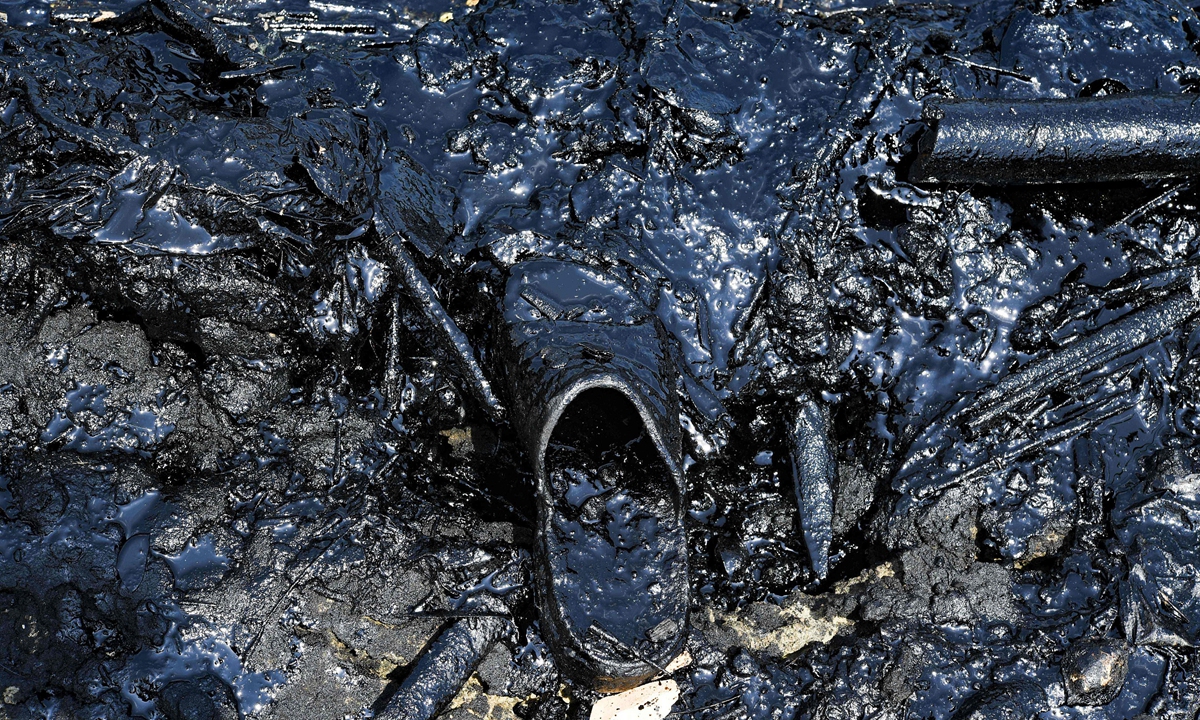Venezuelan coast to take 50 years to recover
Venezuela coast could take half a century to recover from oil spill, researcher says
A strip of Venezuela's western coastline boasting pristine beaches and fragile ecosystems like mangroves and coral reefs could take more than half a century to fully recover from the environmental impacts of a recent oil spill, a researcher said on Wednesday.

"We project that the negative consequences on ecosystems and their components could last for 50 years or more," Julia Alvarez, a biologist with Venezuela's SVE ecological society, told reporters. Alvarez added that the area was also home to mollusks that likely would have died instantly on contact with the oil, threatening the livelihood of fishermen in the area at a time of severe economic contraction in Venezuela.
Independent researchers and opposition lawmakers have said the spill likely originated from the El Palito oil refinery in nearby Carabobo state, citing satellite images showing slicks near the refinery in late July, days before oil began washing up on the coasts of Morrocoy national park.
Researchers calculated it contained around 26,700 barrels of oil.

View of a sandal smeared with oil after a spill on the banks of the polluted Maracaibo Lake, in Cabimas, near Maracaibo, Zulia state, Venezuela on June 13, 2019. The city of Maracaibo is the center of the country's oil industry, and its lake is an eternal oil spill. Photo: VCG
The country's opposition-controlled National Assembly opened an investigation on August 12 to determine the causes and consequences of the oil slicks that began washing up on the Caribbean coast of western Falcon state in early August."We project that the negative consequences on ecosystems and their components could last for 50 years or more," Julia Alvarez, a biologist with Venezuela's SVE ecological society, told reporters. Alvarez added that the area was also home to mollusks that likely would have died instantly on contact with the oil, threatening the livelihood of fishermen in the area at a time of severe economic contraction in Venezuela.
Independent researchers and opposition lawmakers have said the spill likely originated from the El Palito oil refinery in nearby Carabobo state, citing satellite images showing slicks near the refinery in late July, days before oil began washing up on the coasts of Morrocoy national park.
Researchers calculated it contained around 26,700 barrels of oil.
